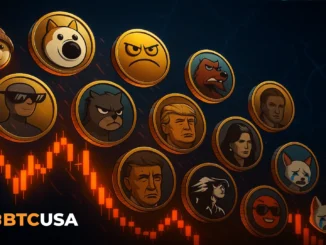
Privado ID: Financial Incentives Undermine Consent for Biometric Data
As debates over biometric data collection and digital ID systems grow louder, Evin McMullen, co-founder of Privado ID, says that short-term financial incentives can sacrifice standards of ethics. McMullen underscored that offering money for biometric data cannot be considered genuine informed consent.
Concerns Over Data Collection in Emerging Markets
McMullen identified the precariousness of people’s economic position as singular in a manner that the direct payment for biometric data would amount to coercion rather than consent.
“Paying people directly for biometric data in desperate economic circumstances is coercion. It’s not consent,” McMullen said.
These digital ID projects have been subject to bans and other regulatory restrictions imposed by several governments, which have raised ethical and security concerns about the collection of biometric data.
World ID Project Faces Global Bans
Data security and ethical issues related to biometric data collection have made various governments of the world take stern actions against World, formerly known as Worldcoin.
Kenya Leads the Charge
Kenya was the first country to ban Worldcoin back in August 2023 due to the potential threat its iris-scanning technology posed to the privacy and security of personal information.
Spain and Portugal Follow Suit
In March 2024, Spain’s Agency for the Protection of Data ordered Worldcoin to cease its data collection practices over accusations it had collected biometric information from minors. Portugal also suspended Worldcoin for three months to study the company’s iris-scanning technology.
Hong Kong and Brazil Impose Severe Measures
In May 2024, Hong Kong’s Privacy Commissioner-PCPD-declared that Worldcoin gathered facial images redundantly in violation of local privacy laws. The government then ordered Worldcoin to desist from operations.
More recently, Brazil banned the Worldcoin token in January 2025 due to the issuance of financial benefits in exchange for biometric information. The South American country ruled through its national data protection agency, ANPD, that doing so violated all standards of ethical data collection.
The Growing Global Crackdown
With increased scrutiny over the collection of biometric data, regulators worldwide are setting tighter restrictions on projects such as Worldcoin. As governments continue to support laws that protect data privacy, companies that rely on financial incentives for sensitive information could face even more legal challenges. Digital ID systems have become a contentious topic with ethical and transparent data collection practices rising to the fore, driving regulators to impose stricter frameworks on the protection of personal information in a digitizing world.


